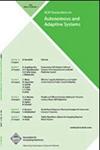基于可再生能源组合的服务器集群管理
IF 2.2
4区 计算机科学
Q3 COMPUTER SCIENCE, ARTIFICIAL INTELLIGENCE
引用次数: 30
摘要
随着气候变化成为全球关注的问题,服务器能源需求持续飙升,许多IT公司已经开始探索运行在各种可再生能源上的服务器集群。现有的绿色数据中心设计经常产生次优性能,因为它们只考虑某种特定类型的能源。本文探讨由混合可再生能源系统提供动力的数据中心。我们提出GreenWorks,这是一个运行在可再生能源组合上的HPC数据中心框架。具体来说,GreenWorks的特点是针对不同能源的时序行为和容量限制量身定制的跨层电源管理方案。使用实际的工作负载跟踪和可再生能源数据,我们表明GreenWorks可以提供接近最佳的工作负载性能(平均差在3%以内)。与最先进的设计相比,它还可以将最坏情况下的性能下降减少43%。此外,性能改进是基于碳中和操作,不会以显著降低效率和缩短电池生命周期为代价。当服务器的能量比例更大时,我们的技术就会变得更高效,并且可以有效地处理绿色数据中心中不断增长的可再生能源渗透深度。本文章由计算机程序翻译,如有差异,请以英文原文为准。
Managing Server Clusters on Renewable Energy Mix
As climate change has become a global concern and server energy demand continues to soar, many IT companies have started to explore server clusters running on various renewable energy sources. Existing green data center designs often yield suboptimal performance as they only look at a certain specific type of energy source. This article explores data centers powered by hybrid renewable energy systems. We propose GreenWorks, a framework for HPC data centers running on a renewable energy mix. Specifically, GreenWorks features a cross-layer power management scheme tailored to the timing behaviors and capacity constraints of different energy sources. Using realistic workload traces and renewable energy data, we show that GreenWorks could provide a near-optimal workload performance (within 3% difference) on average. It can also reduce the worst-case performance degradation by 43% compared to the state-of-the-art design. Moreover, the performance improvements are based on carbon-neutral operations and are not at the cost of significant efficiency degradation and reduced battery lifecycle. Our technique becomes more efficient when servers become more energy proportional and can effectively handle the ever-increasing depth of renewable power penetration in green data centers.
求助全文
通过发布文献求助,成功后即可免费获取论文全文。
去求助
来源期刊

ACM Transactions on Autonomous and Adaptive Systems
工程技术-计算机:理论方法
CiteScore
4.80
自引率
7.40%
发文量
9
审稿时长
>12 weeks
期刊介绍:
TAAS addresses research on autonomous and adaptive systems being undertaken by an increasingly interdisciplinary research community -- and provides a common platform under which this work can be published and disseminated. TAAS encourages contributions aimed at supporting the understanding, development, and control of such systems and of their behaviors.
TAAS addresses research on autonomous and adaptive systems being undertaken by an increasingly interdisciplinary research community - and provides a common platform under which this work can be published and disseminated. TAAS encourages contributions aimed at supporting the understanding, development, and control of such systems and of their behaviors. Contributions are expected to be based on sound and innovative theoretical models, algorithms, engineering and programming techniques, infrastructures and systems, or technological and application experiences.
 求助内容:
求助内容: 应助结果提醒方式:
应助结果提醒方式:


